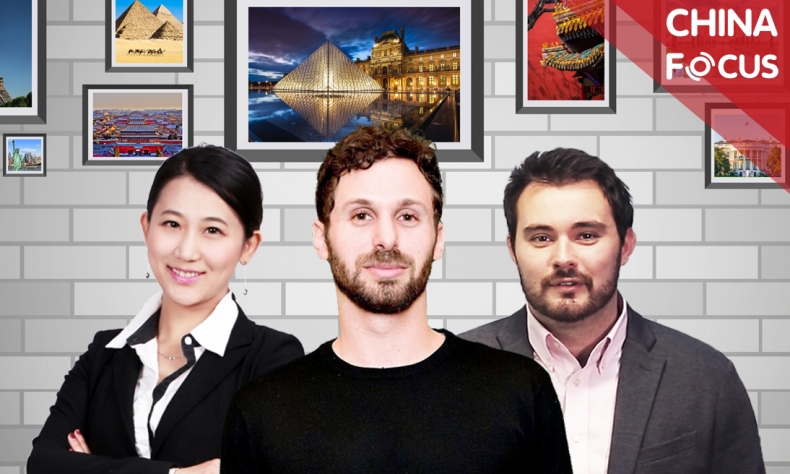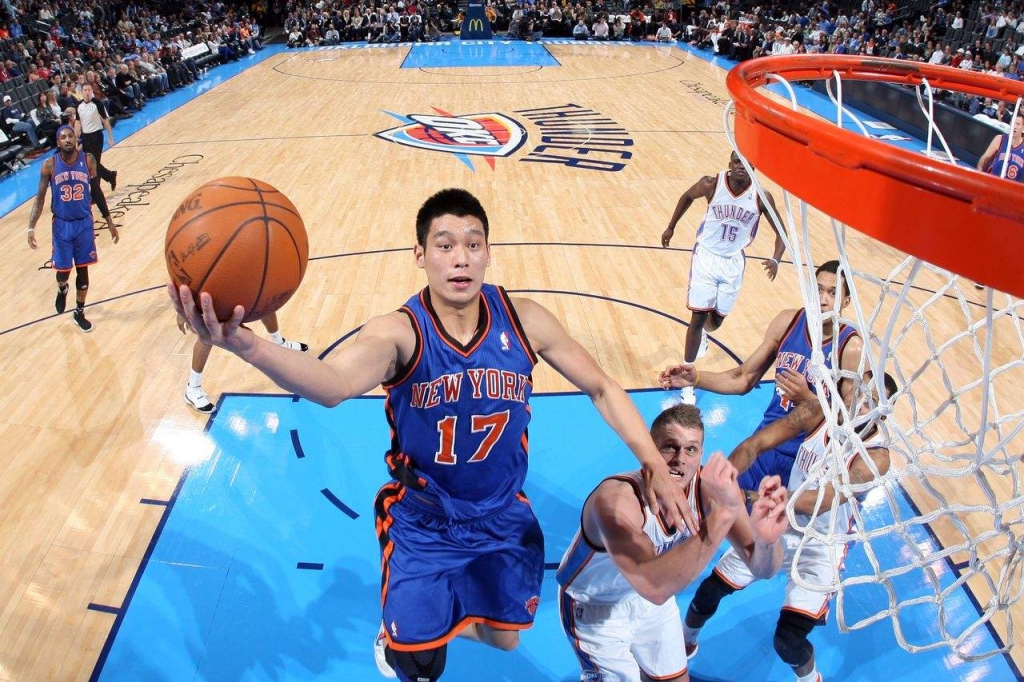
Youth In Revolt- How China’s Young Guns are Changing the World
Looking Ahead, It’s the Youth That Count
President Xi Jinping delivered a speech at in Beijing on April 30 to mark the centenary of the May Fourth Movement, when China’s young intellectuals fought resolutely against imperialism and feudalism in the aftermath of the Paris Peace Conference on May 4, 1919. The actions of approximately 3,000 students gave birth to a cultural movement centred on patriotism, progress, democracy and science that encouraged a new wave of critical thought that contributed to the creation of the Communist Party of China (CPC) in 1921.
China’s young people today experience an entirely different China and world to those involved in the May Fourth Movement, but their spirit continues to influence modern youths as they pursue their Chinese dream and the rejuvenation of their country.
In the spirit of this movement’s hundred-year anniversary, China Focus interviewed two young professionals to explore how China’s youth are making their mark on the world, just as their peers did in 1919.
 Former finance analyst at the World Bank and Standard Chartered, Ms. Kelly Zhang and author of Young China, Mr. Zak Dychtwald, gave their critical insight into China’s young people, explaining that the pride and spirit of the movement lives on as they fight for a world full of vitality, potential and hope.
Former finance analyst at the World Bank and Standard Chartered, Ms. Kelly Zhang and author of Young China, Mr. Zak Dychtwald, gave their critical insight into China’s young people, explaining that the pride and spirit of the movement lives on as they fight for a world full of vitality, potential and hope.
How are China’s youth influencing the world and how are their ideas and priorities different to that of western youths?
Former finance analyst at the World Bank and Standard Chartered, Ms. Kelly Zhang and author of Young China, Mr. Zak Dychtwald, gave their critical insight into China’s young people, explaining that the pride and spirit of the movement lives on as they fight for a world full of vitality, potential and hope.
How are China’s youth influencing the world and how are their ideas and priorities different to that of western youths?
China Focus: How would you characterize a Chinese Millennial?
Zak Dychtwald: China’s Millennials are an enormous demographic but they aren’t defined as Millennials, like in the West. Instead, China divides generations by decades. So, the post-eighties post-nineties generation are combined to make this massive group of young people who are changing how China sees itself in the world.
Kelly Zhang: I’m part of the late eighties group. We are more hard-working than the ninety’s generation, who are more open-minded and have more freedom. We study really hard, usually all day and night because we need to pass our final exam –the Gaokao. After-school we also take other courses to help us prepare.
China Focus: How is growing up in China different from western countries?
Zak Dychtwald: The project of childhood in China is fundamentally different from what we have in the West. When I was growing up in California and I was at swimming practice, my peer in China was studying. After school, when I was speaking as part of the debate team, my peer in China was studying. If you were the captain of the football team, whenever you’re at practice, your peer in China was studying. The study culture of Chinese life is the most defining element of being young in China.

Kelly Zhang: Chinese students are really driven to get into a top school and this drive comes from Chinese culture and parents. Chinese parents are really keen for their children to grow-up well but they put too much hope on their children. This is because they want their kids to fulfil dreams that they never could.
Zak Dychtwald: The cultural side of this is really important. In China, there’s something called the return and feed model. It comes from the idea of a nest. The mama and papa bird feed their child until the baby bird is old enough to leave and start a family. Once they’re ready to start their own family, the expectation is that when mama and papa bird are older, they come back and takes care of them. This is a system that worked really well up until very recently.

Zak Dychtwald: The cultural side of this is really important. In China, there’s something called the return and feed model. It comes from the idea of a nest. The mama and papa bird feed their child until the baby bird is old enough to leave and start a family. Once they’re ready to start their own family, the expectation is that when mama and papa bird are older, they come back and takes care of them. This is a system that worked really well up until very recently.
China Focus: What is your Chinese Dream?
Kelly Zhang: As I grew up, the more I experienced, the bigger dreams became. After I’d worked at the World Bank for a couple of years, I had my own mission, which was to help my nation grow stronger. That’s my current dream. I think western people don’t have the same clear goals their future, which makes their school life less pressured.
Zak Dychtwald: I absolutely agree. In China there are far more concrete career goals than in the West. Although, we have to be careful to acknowledge that Chinese people who can achieve their financial and career dreams, are only the elite, not the majority.
Kelly Zhang: Yes, but these elites are going to influence the majority in the future. You need the model of people achieving their dreams first and then it will spread out. I think Chinese people are very ambitious, which has contributed to China growing dramatically.
The drive behind this is the Chinese dream. Everyone has a Chinese dream; to achieve, to live a better life. I returned back from U.S. and UK to achieve my Chinese dream. I also feel that Chinese people love their country. Many of my friends have given up their Wall Street ‘big titles’ to return to China, so they can do something meaningful.
 Zak Dychtwald: I agree. If you do look at education flows, previously when people graduated from schools like Yale, they would try to stay. Now about between seventy to eighty percent of students who graduate from American or UK universities are actually returning home. Young people perceive opportunities at home are far greater than they are abroad.
Zak Dychtwald: I agree. If you do look at education flows, previously when people graduated from schools like Yale, they would try to stay. Now about between seventy to eighty percent of students who graduate from American or UK universities are actually returning home. Young people perceive opportunities at home are far greater than they are abroad.
Kelly Zhang: There are lots of opportunities in China as it has become more innovative and the government has great policies to encourage educated people back home.
Zak Dychtwald: There’s no doubt that there’s an incredible surge of wealth creation happening in China. Innovation, change, growth, all at paces that you just don’t see everywhere else in the world.
China Focus: You’ve both stated Chinese people feel a great sense of pride in helping their country succeed. Do you think other country’s young people feel the same sense of pride?
Kelly Zhang: Yes, but these elites are going to influence the majority in the future. You need the model of people achieving their dreams first and then it will spread out. I think Chinese people are very ambitious, which has contributed to China growing dramatically.
The drive behind this is the Chinese dream. Everyone has a Chinese dream; to achieve, to live a better life. I returned back from U.S. and UK to achieve my Chinese dream. I also feel that Chinese people love their country. Many of my friends have given up their Wall Street ‘big titles’ to return to China, so they can do something meaningful.
Zak Dychtwald: I agree. If you do look at education flows, previously when people graduated from schools like Yale, they would try to stay. Now about between seventy to eighty percent of students who graduate from American or UK universities are actually returning home. Young people perceive opportunities at home are far greater than they are abroad.
Kelly Zhang: There are lots of opportunities in China as it has become more innovative and the government has great policies to encourage educated people back home.
Zak Dychtwald: There’s no doubt that there’s an incredible surge of wealth creation happening in China. Innovation, change, growth, all at paces that you just don’t see everywhere else in the world.
China Focus: You’ve both stated Chinese people feel a great sense of pride in helping their country succeed. Do you think other country’s young people feel the same sense of pride?
 Zak Dychtwald: I think in the West we’re in a bit of an identity crisis. I’m a proud American but there is no doubt that we’re at a point right now where we aren’t sure who we are. In America, we voted in a president on the idea of “making America great again”, which is a tacit admission that we don’t think we’re so great. My friends in China believe that their country is becoming great now at a pace and scale that is unprecedented in modern history.
Zak Dychtwald: I think in the West we’re in a bit of an identity crisis. I’m a proud American but there is no doubt that we’re at a point right now where we aren’t sure who we are. In America, we voted in a president on the idea of “making America great again”, which is a tacit admission that we don’t think we’re so great. My friends in China believe that their country is becoming great now at a pace and scale that is unprecedented in modern history.
I think Americans are increasingly confused about their role on the world stage and the idea of “American excellence” is being called into question, at a time when there is a sense of China’s rise.
China Focus: What do you think is China’s role in the world right now?
Kelly Zhang: I have worked at the World Bank and experienced first-hand China’s impact on the world. China puts billions and billions into international organizations like World Bank and that money has been distributed and invested in many emerging markets. China is contributing more and more globally.
I’m very proud that China is involved in lots of great initiatives and is investing in emerging markets through different vehicles, corporations and international organizations.
Zak Dychtwald: What China’s doing differently and effectively, is offering real alternatives to U.S.-led international institutions. Now these are investment vehicles, not charity. But what’s interesting is when looking at the U.S.’s relationship with areas, like Africa, a lot of those relationships were based on foreign aid. China however, with those same African countries, has a relationship based on investment or mutual trade.
Kelly Zhang: As President Xi Jinping mentioned, China is creating a shared future for humanity.
Zak Dychtwald: We talk a lot about, you know, the United States and China, but China’s doing something far bigger than that. China is doing a very good job of creating a sort of hub and spoke model of economic and political dependencies, particularly with Belt and Road. So, what China is doing both politically and economically is making its role in the region and the world absolutely essential, so that China’s economic and political survival and thriving will have positive or negative impacts on all of the countries that are involved with it. One of China’s greatest successes or successful aspects of this plan is making sure to benefit in the long term the countries that it’s that it’s working with.
China Focus: What advise would you give to Millennials who are looking to succeed in this increasingly challenging world?
Kelly Zhang: I would say to young people that the future is in your hands and that the sky is your limit, so be the best you can be!
Zak Dychtwald: I’d say, firstly, good relationships are based on understanding. Chinese people have made an enormous effort to understand the English-speaking world. They have made an enormous effort to learn from us, to understand our culture and to understand what we stand for. They’re also going to be competing with us going forward, so my hope is that westerner’s make a similar effort to understand who this young generation in China is.
Secondly, do what you love and be ready to work at it. There is this whole generation in China who has this incredible work ethic and is beginning to do what they love and is beginning to be more purpose-driven.
We need to rise to challenges but also work together based on mutual understanding. The future might be yours but you have to be ready to work for it and commit to it.
 Facebook
Facebook
 Twitter
Twitter
 Linkedin
Linkedin
 Google +
Google +











